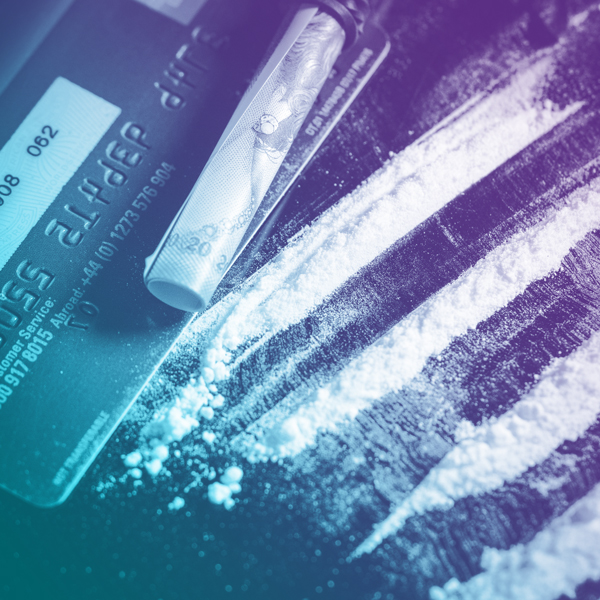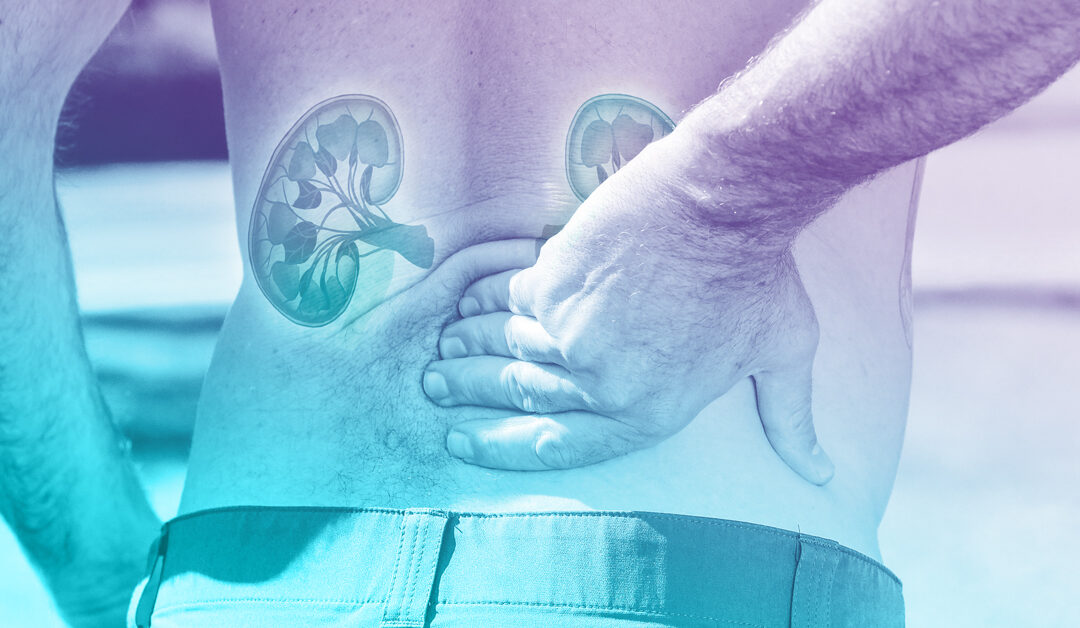Kidney Damage and Cocaine
The kidneys provide many vital functions, including ridding the body of waste and helping the system to maintain the right amount of fluid. They also produce essential nutrients, create red blood cells, and maintain blood pressure. Illicit substances, particularly cocaine, can significantly damage the kidneys and make it hard for them to perform the way they should. Here is everything you need to know about cocaine, its impact on the kidneys, and how you can get help if you or a loved one are living with addiction.

What Is Cocaine?
Cocaine is a highly addictive drug derived from Erythroxylon coca Lam leaves, a species of the coca plant cultivated in South America. Medical practitioners once used cocaine to block pain before modern-day anesthetics were available.
Today, cocaine is used recreationally and can change the way the brain functions as well as hurt the body’s vital organs. It is considered a Schedule II drug, which means that it has a high potential for dependence. People typically use two forms of cocaine: the water-soluble salt form and the water-insoluble base form.
The salt form comes in a powder, which can be injected, swallowed, or snored. The base form is combined with water and other chemicals, heated to remove the hydrochloride, and looks like a crystal rock. This form is smoked and is usually known as crack.
How Does Cocaine Work?
Cocaine produces a stimulating effect by sending high levels of dopamine into the brain area that regulates pleasure and emotions. This buildup of dopamine causes temporary feelings of intense energy, alertness, and euphoria. Other short-term impacts of cocaine on the body include:
- Extreme irritability
- Loss of appetite
- Feelings of happiness
- Sensitive to light, sound, or touch
People who use cocaine over a long period of time often experience the following health problems:
- Heart disease
- Stroke
- Headaches
- Seizures
- Sexual dysfunction
- Kidney problems
- Lung damage
- HIV infection
- Hepatitis C infection
- Digestive issues
- Bowel decay
The more you use cocaine, the more you need to produce the same feelings. Higher dosages can lead to increased tolerance or overdose.
How Is Cocaine Used?
Cocaine can be inhaled through the nostrils, taken orally, smoked in a crystallized form, or dissolved and taken intravenously. Smoking or injecting cocaine often brings about the quickest and most intense high.
Recently, drug dealers have started to mix cocaine with other substances to make the supplies go further. Cocaine is cut with various substances, ranging from harmless powders such as baking soda or talc to potent adulterants like fentanyl. The practice of making the drug go further by combining it with fentanyl has increased in prevalence in recent years.
How Addictive Is Cocaine?
Cocaine is one of the most “addictive” recreational drugs, meaning those who use it (particularly alongside an untreated/undiagnosed mental health condition) risk forming a dependence upon it. It stops the brain from eliminating dopamine from the body, producing short-term emotions of joy and happiness. The person will constantly need more of the drug to get the same feeling, causing dependence to quickly take hold of the body. Cocaine can also increase stress and irritability, resulting in the person taking more to stabilize negative feelings. Further, the impact of cocaine does not last very long, causing the person to ingest more in a short period.
What Are the Function of the Kidneys?
The kidney performs many vital functions for the body. The most essential role is to eliminate waste by filtering blood and creating urine. Urine is stored in the kidneys, transported to the bladder, and eventually excreted. The kidneys produce urine by combining toxins, extra fluid, and waste products.
The bladder and the kidneys work in conjunction to prevent excess fluid buildup and maintain the proper number of electrolytes within the body. Cocaine eventually ends up in the kidneys and can damage the organ’s essential functions after repeated use. Heavy cocaine use can lead to rhabdomyolysis, which occurs when the muscle tissues break down and enter the bloodstream. Rhabdomyolysis can cause kidney failure if left unchecked.
How Does Cocaine Impact the Kidneys?
Almost half of cocaine-related emergency room visits are because of acute kidney problems. Repeated intake of cocaine can cause dead tissue to form in the kidneys, leading to improper function. Cocaine can also cause plaque to accumulate in the walls of the renal arteries, leading to a condition known as atherosclerosis. If you experience vomiting, nausea, or abdominal pain, you may have damage occurring to the kidneys.
What Are the Signs of a Cocaine Overdose?
Ingesting too much cocaine, either purposefully or on accident, can cause several psychological and physical responses that can lead to death if left untreated. The amount of the drug needed to overdose depends on the individual but can be less than a gram if the purity is high. You may experience the following symptoms during an overdose:
- Excessive sweating
- High body temperature
- Confusion
- Irritability
- Seizures
- Convulsions
- Vision loss
- Paranoia
- Anger
- Chest pain
- Rapid heartbeat
- Unresponsiveness
You should contact medical personnel immediately if you or someone you know is exhibiting overdose symptoms.
What Are the Risk Factors for Cocaine Overdose?
An overdose can occur at any time during someone’s cocaine use, whether they have been taking it for a long time or the first time. First-time cocaine use causes susceptibility to ingesting too much because the person does not know how much of the drug their body can handle. Some people think they can tolerate more than their bodies can reasonably handle, especially after periods of refraining from use. Those who take cocaine regularly can become reckless and take too much without realizing how much they have consumed.
Combining cocaine with other harmful substances has become common to make the substance go further. It is sometimes impossible to know what is in cocaine, particularly if you get it from a new source. Cocaine laced with fentanyl or other deadly substances has increased accidental overdoses in recent years.
What Are Cocaine Treatment Options?
If you or someone you know is living with a cocaine use disorder, it is crucial to seek treatment as quickly as possible. Your treatment plan will depend on numerous factors, including your health status, age, and how long you have been abusing cocaine. Depending on your condition, the following treatment options may be recommended.
Medical Detox
The first step to recovery is a medical detox program. During these programs, you stop taking the substance under the supervision of medical personnel. Detox can happen in various settings, including clinics, hospitals, and outpatient facilities. Some people have very severe reactions when they stop taking cocaine, and it is best to detox with the assistance of health professionals.
Inpatient Programs
Attending an inpatient program is often the first step after detoxing. These programs can occur in a hospital, medical facility, or sober living house. Inpatient facilities often combine treatment options such as medication, therapy, and behavior management.
Partial Hospitalization Programs
Partial hospitalization programs provide you with more freedom after completing detox and an inpatient treatment program. These programs provide consistent support and assistance while allowing you to transition back into everyday activities.
Intensive Outpatient Programs
Outpatient facilities provide support while giving you reasonable freedom and autonomy. It is a good option for those who have completed detox and an inpatient program. These programs provide treatment during the day, but patients are free to go home at night. Intensive outpatient programs can last from several weeks to a year or more.
Sober Housing Programs
Individuals who want more support after finishing detox and an outpatient program may benefit from living in a transitional living environment. These programs provide accommodations and support, but there is the freedom to work or attend classes during the day.
Get Help Today
Are you ready to seek help for your addiction? Clean Recovery Centers can help. We provide numerous cocaine rehab services in Florida, including medical detox, outpatient treatment, community housing, and transitional living. Don’t wait any longer to get the help you need. Contact us today to start your recovery journey.


